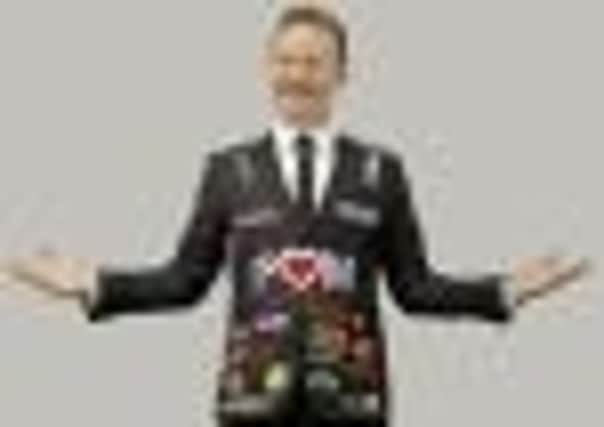Film review: The Greatest Movie Ever Sold


THE GREATEST MOVIE EVER SOLD
Director: Morgan Spurlock
Running time: 90 minutes
* * *
On the other hand, artists as elevated as Nicole Kidman, George Clooney, Rachel Weisz and Daniel Craig augment their meagre incomes with a little brand endorsement.
At times the marriage of star and product makes for an odd couple: recently we discovered that both Clooney and Kidman lend their stardust to bathroom tiles, as if there’s nothing an Oscar winner enjoys more between films than grouting. And occasionally the push is uncomfortable: why doesn’t someone as smart as Clooney realise that his long-standing contract with a well-known brand of coffee doesn’t jive with his long-running campaign to aid Africa?
Advertisement
Hide AdThe connection between advertising and movies goes way back, of course, which is why Morgan Spurlock’s new documentary about product placement hardly counts as news. Audiences already know that when someone drinks a Coke or checks Google on their MacBook, the companies are paying for embedded ads and helping finance the film concerned, but then Spurlock is not a director who breaks new ground: Super Size Me revealed that if you ate nothing but burgers for a month you would become fat and unhealthy, while Where In The World Is Osama Bin Laden? laid bare the fact that Afghans are people too. However, he does offer lively patter, some good jokes and a perky skate through how product promotion works after he decides to offer his documentary for sponsorship.
Initially he gets turned down a lot. Most brand leaders don’t want to risk Spurlock taking their money and then mocking them, but eventually the makers of a deodorant called Ban take a leap of faith, deciding that they can work with Spurlock’s own brand identity as “mindful and playful”.
After that, the floodgates open and an airline, a hotel chain and a shampoo that cleanses both people and horses sign up, while for a million dollars, a pomegranate juice drink gets the film’s title changed to POM Wonderful Presents: The Greatest Movie Ever Sold.
All these products receive prominent positioning in the movie, with Spurlock arranging interviews in front of Sheetz supermarkets, or reflecting on his points behind a pair of Carrera sunglasses. Each sponsor also gets a proper ad during the film, which is how we end up watching him wash his hair in a bathtub with a miniature horse. And yes, I’m aware that this review gives the brands another plug, but I also wondered whether Spurlock approached more contentious products such as cigarettes or medicines. I bet he didn’t, because Spurlock is too mindful and playful to walk on such thin ice.
He’s no Noam Chomsky, though: an intriguing interlude where he visits Sao Paulo, a city where outdoor advertising is banned, merely registers the odd nakedness of a city without billboards.
Spurlock doesn’t delve deep, but he’s a likeable companion over 90 minutes and his Hollywood interviews are instructive. Quentin Tarantino pops up to recall being turned down by an all-day breakfast chain because they didn’t want their family brand associated with Reservoir Dogs and Pulp Fiction, while X Men: The Last Stand director Brett Ratner reveals why he keeps getting work by dismissing the ethics of product placement as “Artistic integrity? Whatever.” v
Glasgow Film Theatre, from Friday to 22 October